Volvo XC40 VS Nissan Qashqai
In the competitive compact SUV segment, the Nissan Qashqai and Volvo XC40 stand out for their unique blend of style and practicality. The Qashqai impresses with its agile handling and fuel efficiency, making it an ideal choice for urban driving. Meanwhile, the XC40 offers a premium feel with superior interior quality and cutting-edge safety features, appealing to those looking for a more luxurious experience.
Volvo XC40
The Volvo XC40 is a standout model in the compact SUV segment, offering a delightful blend of Scandinavian design and practicality. Its interior is both stylish and functional, featuring premium materials and innovative storage solutions that make every journey comfortable. The car's performance is smooth and responsive, with advanced safety features ensuring peace of mind for drivers and passengers alike.
detailsNissan Qashqai
The Nissan Qashqai stands out in the compact SUV market with its sleek design and versatile features. Its smooth ride and refined interior make it a popular choice for both city driving and weekend adventures. Advanced safety technologies and user-friendly infotainment add to its appeal, ensuring a comfortable and secure driving experience for all passengers.
detailsIn the competitive landscape of SUVs, two models that stand out for their innovation and performance are the Nissan Qashqai and the Volvo XC40. Each brings its unique blend of style, technology, and efficiency to the segment, catering to a diverse range of customer preferences. This article explores the technical aspects and innovative features of both vehicles, comparing them to help potential buyers make an informed decision.
Design and Dimensions
The Nissan Qashqai and Volvo XC40 both exhibit striking designs that appeal to modern SUV enthusiasts. The Qashqai measures 4425 mm in length, 1835 mm in width, and 1625 mm in height, offering a bold and athletic stance. In contrast, the XC40 mirrors its length but is slightly wider at 1863 mm and taller at 1652 mm, giving it a more commanding presence on the road.
Powertrains and Performance
Under the hood, the Nissan Qashqai offers a range of engine options, including petrol MHEV and full hybrid options, with power outputs spanning from 140 to 190 HP. The Qashqai also boasts multiple transmission options, including both manual and automatic gearboxes, ensuring a smoother ride tailored to various driving styles. With a 0-100 km/h acceleration time ranging from 7.9 to 10.2 seconds, the Qashqai delivers a spirited performance.
Meanwhile, the Volvo XC40 features a petrol MHEV powertrain, producing either 163 or 197 HP. Its automatic dual-clutch transmission enhances efficiency and responsiveness. The XC40 is capable of achieving 0-100 km/h in as little as 7.6 seconds, making it a slightly quicker option compared to the Qashqai at its fastest. Despite its standout performance, the XC40 has a lower top speed of 180 km/h compared to the Qashqai's impressive 206 km/h.
Fuel Efficiency and Emissions
When it comes to fuel consumption, the Qashqai shows remarkable efficiency, with figures ranging from 5.1 to 6.8 L/100 km depending on the engine variant. Its CO2 emissions vary from 116 to 154 g/km, indicating a strong stance on environmental responsibility. The XC40, while not trailing far behind, features a 6.5 L/100 km consumption rate, accompanied by CO2 emissions of 147 to 148 g/km. Both vehicles meet modern environmental standards, but the Qashqai takes the lead in overall fuel efficiency.
Interior Comfort and Technology
Interior quality is a crucial aspect of both SUVs. The Qashqai comfortably seats five passengers, designed for maximum usability with a trunk capacity of 504 L—ideal for traveling families or those needing extra cargo space. The Volvo XC40 also accommodates five occupants but provides a slightly smaller trunk volume of 452 L.
In terms of technology, both vehicles come equipped with innovative features aimed at enhancing the driving experience. The Qashqai includes advanced driver-assistance systems, connectivity options, and a user-friendly infotainment system. On the other hand, the XC40 is known for its Scandinavian design ethos, emphasizing simplicity and functionality, while still integrating cutting-edge technology and safety features.
Safety and Reliability
Safety is paramount in both models, with the XC40 benefiting from Volvo's renowned reputation for safety engineering and robust build quality. Although specific safety ratings may vary, both the Qashqai and XC40 come equipped with essential safety features, such as multiple airbags, stability control, and collision avoidance systems, ensuring peace of mind for drivers and passengers alike.
Conclusion
In conclusion, the Nissan Qashqai and Volvo XC40 both offer compelling choices for SUV buyers seeking performance, efficiency, and innovation. The Qashqai stands out with its superior fuel economy and performance metrics, making it an appealing choice for those looking to balance power with efficiency. Conversely, the XC40 appeals to those who prioritize safety, design, and a premium feel.
Ultimately, choosing between these two SUVs will largely depend on individual needs and preferences. As both models continue to evolve and adapt, prospective buyers can rest assured that they are selecting between two of the finest options available in the competitive SUV segment.
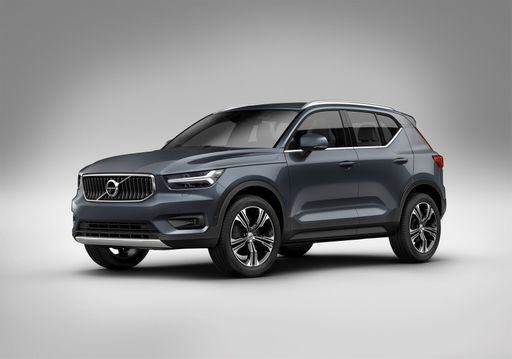 @ media.volvocars.com
@ media.volvocars.com
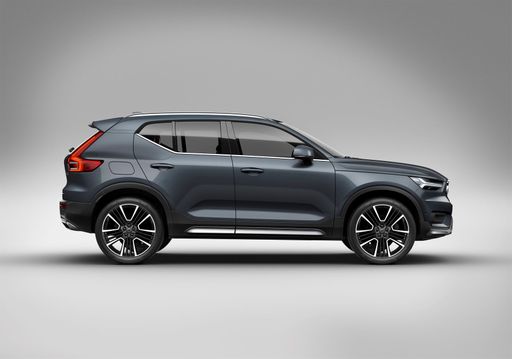 @ media.volvocars.com
@ media.volvocars.com
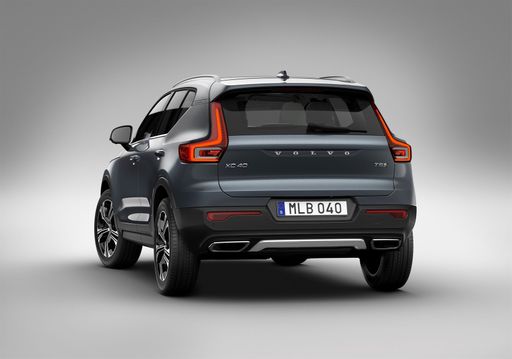 @ media.volvocars.com
@ media.volvocars.com
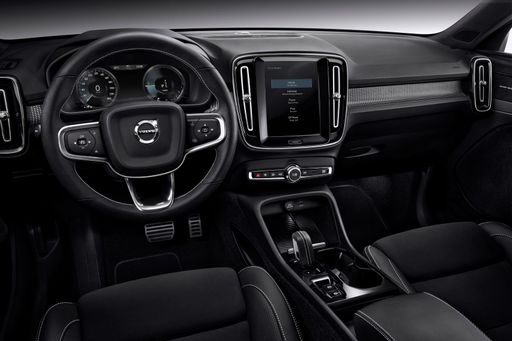 @ media.volvocars.com
@ media.volvocars.com
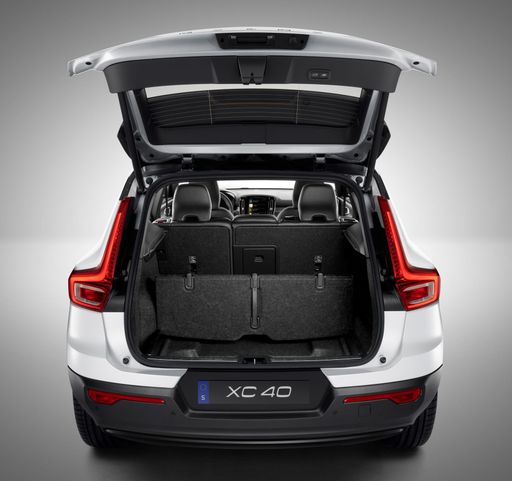 @ media.volvocars.com
@ media.volvocars.com
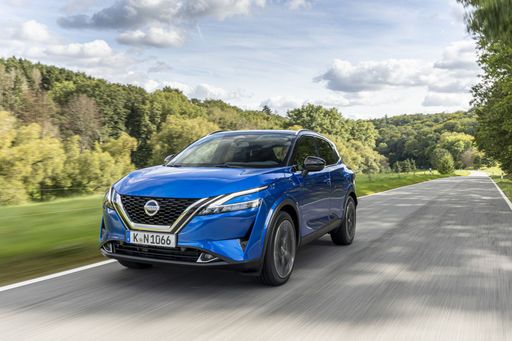 @ Nissan
@ Nissan
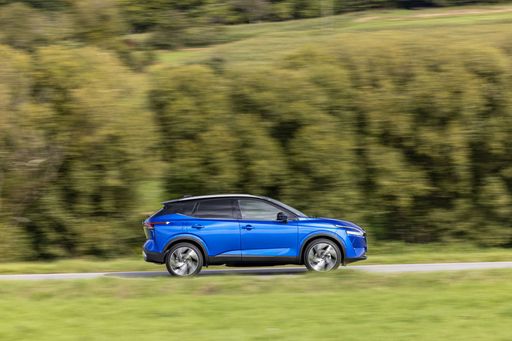 @ Nissan
@ Nissan
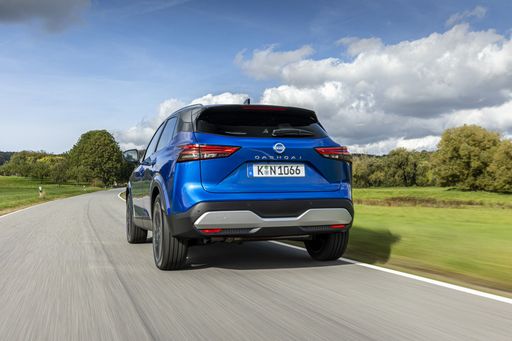 @ Nissan
@ Nissan
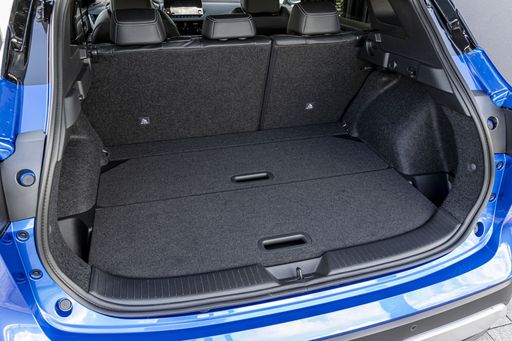 @ Nissan
@ Nissan
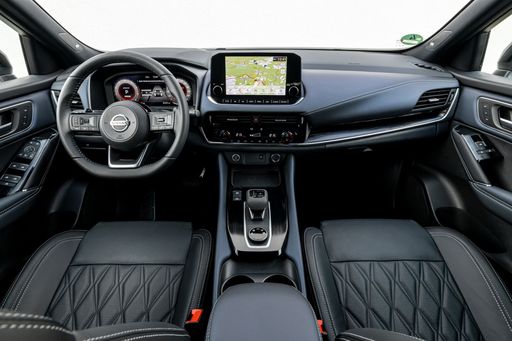 @ Nissan
@ Nissan

|

|
|
|
|
Costs and Consumption |
|
|---|---|
|
Price
about 39300 - 49600
$
|
Price
about 31600 - 45700
$
|
|
Consumption L/100km
6.5
L
|
Consumption L/100km
5.1 - 6.8
L
|
|
Consumption kWh/100km
-
|
Consumption kWh/100km
-
|
|
Electric Range
-
|
Electric Range
-
|
|
Battery Capacity
-
|
Battery Capacity
-
|
|
co2
147 - 148
g/km
|
co2
116 - 154
g/km
|
|
Fuel tank capacity
54
L
|
Fuel tank capacity
55
L
|
Dimensions and Body |
|
|
Body Type
SUV
|
Body Type
SUV
|
|
Seats
5
|
Seats
5
|
|
Doors
5
|
Doors
5
|
|
Curb weight
1688
kg
|
Curb weight
1420 - 1665
kg
|
|
Trunk capacity
452
L
|
Trunk capacity
479 - 504
L
|
|
Length
4425
mm
|
Length
4425
mm
|
|
Width
1863
mm
|
Width
1835
mm
|
|
Height
1652
mm
|
Height
1625
mm
|
|
Payload
532
kg
|
Payload
466 - 520
kg
|
Engine and Performance |
|
|
Engine Type
Petrol MHEV
|
Engine Type
Petrol MHEV, Full Hybrid
|
|
Transmission
Automatic
|
Transmission
Manuel, Automatic
|
|
Transmission Detail
Automat. Schaltgetriebe (Doppelkupplung)
|
Transmission Detail
Manual Gearbox, CVT, Reduction Gearbox
|
|
Drive Type
Front-Wheel Drive
|
Drive Type
Front-Wheel Drive, All-Wheel Drive
|
|
Power HP
163 - 197
HP
|
Power HP
140 - 190
HP
|
|
Acceleration 0-100km/h
7.6 - 8.6
s
|
Acceleration 0-100km/h
7.9 - 10.2
s
|
|
Max Speed
180
km/h
|
Max Speed
170 - 206
km/h
|
|
Torque
265 - 300
Nm
|
Torque
240 - 330
Nm
|
|
Number of Cylinders
4
|
Number of Cylinders
3 - 4
|
|
Power kW
120 - 145
kW
|
Power kW
103 - 140
kW
|
|
Engine capacity
1969
cm3
|
Engine capacity
1332 - 1497
cm3
|
|
Top speed
180
km/h
|
Top speed
170 - 206
km/h
|
General |
|
|
Model Year
2024
|
Model Year
2024
|
|
CO2 Efficiency Class
E
|
CO2 Efficiency Class
E, D
|
|
Brand
Volvo
|
Brand
Nissan
|
Volvo XC40
Introduction: The Refined Volvo XC40
The Volvo XC40 is a testament to Swedish innovation and design, blending practicality with cutting-edge technology in the compact SUV segment. Aimed at drivers who value safety, comfort, and eco-conscious driving, the XC40 continues to uphold Volvo's reputation for engineering excellence. In this article, we'll explore the technical specifications and innovative features that make the XC40 a standout choice for modern drivers.
Power and Performance
Under the bonnet, the Volvo XC40 offers a range of mild-hybrid petrol engines, combining efficiency with a responsive driving experience. The power output ranges from 163 to 197 PS (120 to 145 kW), ensuring robust performance for both urban commuting and longer journeys. With a maximum torque of 265 to 300 Nm, the vehicle offers smooth acceleration, achieving 0-100 km/h in just 7.6 to 8.6 seconds, whilst maintaining a CO2 efficiency class of E.
Efficiency Meets Eco-Conscious Design
The mild-hybrid system in the XC40 effectively reduces fuel consumption, with an impressive average of 6.5 L/100km. The system recycles braking energy to charge the battery, reducing emissions to between 147-148 g/km without compromising on performance. This design aligns perfectly with Volvo's commitment to sustainable motoring.
Cutting-Edge Transmission
The XC40 is equipped with an advanced automatic dual-clutch transmission that seamlessly transitions through gears, enhancing both fuel efficiency and driving comfort. The integration of this technology underscores Volvo’s commitment to delivering an engaging yet smooth driving experience.
Sophisticated Interior Design
The interior of the XC40 reflects Volvo’s dedication to Scandinavian design aesthetics, featuring a spacious cabin with high-quality materials. The vehicle comfortably seats five passengers, with a versatile boot space of 452 litres, making it ideal for family outings or road trips. The intuitive infotainment system is seamlessly integrated, providing driver-friendly access to navigation, entertainment, and safety features.
Safety Innovations
Volvo’s renowned safety reputation is evident in the XC40’s comprehensive suite of safety features. Advanced driver assistance systems, including adaptive cruise control, blind-spot monitoring, and lane-keeping aid, ensure a secure driving environment. The XC40’s construction and technology adhere to Volvo's “Vision 2020” strategy, aiming for zero fatalities or serious injuries in new Volvo cars.
Conclusion: A Contemporary Choice
The Volvo XC40 stands out as a compact SUV that blends innovation, efficiency, and style. Its proactive approach to hybrid technology, coupled with Volvo’s trademark focus on safety and design, makes it a compelling choice for those seeking a blend of practicality and performance. Whether it’s the daily commute or a weekend getaway, the XC40 is engineered to deliver a dynamic and sustainable driving experience.
Nissan Qashqai
Exploring the New Nissan Qashqai: A Masterclass in Innovation and Performance
The Nissan Qashqai stands as a testament to the brand's continuous evolution in the competitive SUV market. Building on its robust reputation, the latest models bring a blend of style, efficiency, and groundbreaking technology that cater to the modern driver's needs. As we delve into the technical nuances and innovative features, it becomes evident why the Qashqai remains a top contender in its segment.
Powertrain and Efficiency: A Harmonious Balance
The latest Nissan Qashqai models feature an advanced range of powertrain options, including both mild-hybrid and full-hybrid systems. The 1.3 DIG-T MHEV engines provide power outputs ranging from 140 to 158 PS, ensuring a responsive driving experience while maintaining a remarkable fuel efficiency of 6.3 L/100km for automatic front-wheel drive versions. The full-hybrid 1.5 VC-T e-POWER delivers an impressive 190 PS while achieving a fuel efficiency of just 5.1 L/100km, demonstrating Nissan's commitment to ecological innovation.
Advanced Transmission Systems
Drivers can choose between manual or automatic transmissions, tailored to their driving style. The manual gearbox offers a tactile driving experience, while the automatic options, including a CVT and reduction gear transmission, ensure seamless power delivery and heightened efficiency. For those who seek greater traction and stability, all-wheel drive configurations are also available, enhancing the Qashqai's versatility.
High-Tech Interior: Comfort Meets Connectivity
The Qashqai's interior is a sanctuary of technology and comfort. The SUV features a user-friendly infotainment system with a touchscreen interface, compatible with both Android Auto and Apple CarPlay. The seamless integration of technology extends to advanced driver-assistance systems (ADAS) that include ProPILOT with Navi-link, enhancing convenience and safety during long drives or urban manoeuvres.
Performance and Dynamics: The Driving Experience
When it comes to performance, the Qashqai does not compromise. With acceleration from 0-100 km/h in as little as 7.9 seconds in the more powerful hybrid editions, and a top speed ranging from 170 to 206 km/h, Nissan ensures that excitement is part and parcel of the Qashqai driving experience. This balance of power and control is complemented by a well-tuned suspension system and precise steering response, providing a confident drive whether on highways or country lanes.
Design and Practicality: Where Form Meets Function
Sporting an aerodynamic silhouette, the Qashqai exudes a modern vibe that is both eye-catching and functional. Its dimensions, with a length of 4425 mm and a width of 1835 mm, provide ample cabin space for five passengers, along with a versatile boot capacity of up to 504 litres. These aspects make it an ideal choice for families and adventurers alike.
Conclusion: A Forward-Thinking Choice
The Nissan Qashqai remains a steadfast choice for those seeking an SUV that blends innovative technology with everyday practicality. With its advanced hybrid options and cutting-edge features, it not only meets but often exceeds the demands of today's environmentally conscious and tech-savvy drivers. As Nissan continues to push boundaries, the Qashqai stands as a beacon of what modern SUVs can achieve.
